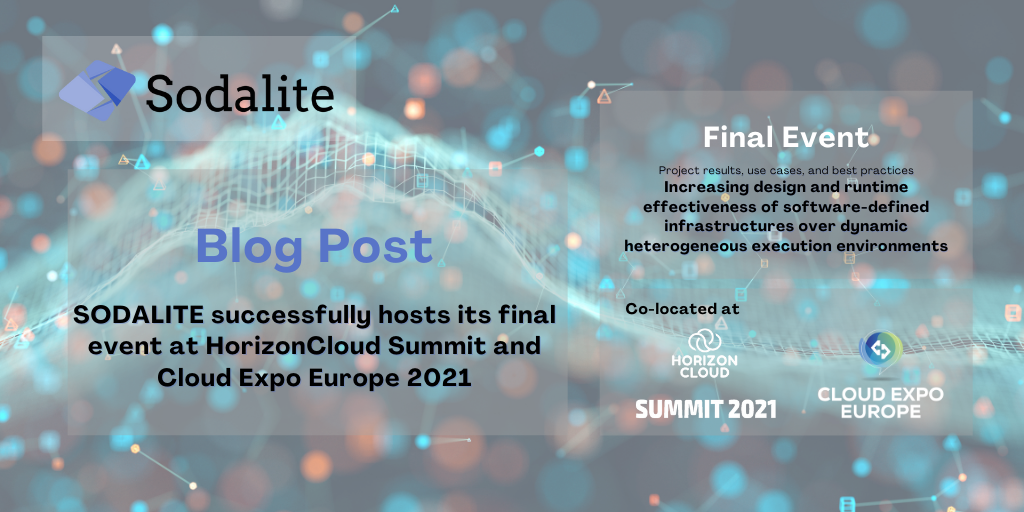The emergence of new technologies supporting the numerous software-defined applications and tools we use on a daily basis has put Cloud and HPC systems at the centre for their correct functioning and availability. This situation has positioned DevOps tools and processes as the essential support for efficient development, deployment and execution of operations over heterogeneous, software-defined, high-performance computing environments.
To better deal with big amounts of data, while complying with security and privacy issues and boost the performance and optimisation of applications, the SODALITE project has been working for 36 months on addressing the challenges brought up by Digital Transformation and Cloud Computing trends, software tools and methods, through the development of a robust and powerful end-to-end toolkit -SODALITE Stack - composed by five different layers bringing specific capabilities and features to focus on performance, quality, and reliability.
As part of its communication strategy, clearly aligned with the expectation and commercialisation roadmap established by the team working on exploitation and sustainability tasks, the SODALITE project organised its final event where all the results achieved were presented, co-located at the 2021 edition of Horizon Cloud Summit and Cloud Expo Europe.
Organised by the H-CLOUD project, the Horizon Cloud Summit at its second edition aimed at gathering innovators and researchers, Cloud adopters, policymakers, Cloud initiatives and open source projects to shape the EU digital transition. Some of the most relevant objectives of this 2-day event were:
- Discussing priorities for Europe at different levels and for different actors, supporting the consolidation of a Strategic Agenda for Research, Innovation and Deployment of Cloud Computing in Europe as a crucial step to guide future public and private investments, by identifying future challenges to be covered in Horizon Europe, Digital Europe and other EU programmes
- Explore the last evolution of Cloud Computing in Europe, giving spaces to cutting edge research outcomes, innovative open solutions, and emerging use cases.
- Explore the role of open source strategies, standards and business models in shaping EU digital autonomy.
- Increase collaboration among Cloud stakeholders and foster the creation of synergies across the European Cloud Computing ecosystem, that will ensure its growth.
On the other hand, the event was also part of Cloud Expo Europe on its German edition that was supposed to be celebrated physically in Frankfurt. Due to the COVID-19 situation, the event was moved to an online format to guarantee the quality of the event, and even more, provide a safe environment for visitors and exhibitors. The event had a twofold objective: evaluate products & services to help sustainably scale and meet the changing demands of customers worldwide, and evaluate big data and AI solutions to help unleash the potential of data and AI, ensuring your digital transformation initiatives are bolstered with accurate analytics and insight.
SODALITE project 2-hour event included various presentations from consortium members to showcase the achievements of the project and the potential benefits these could provide to end-users, such as:
- Increasing design and runtime effectiveness of software-defined infrastructures
- Ensuring high-performance execution over dynamic heterogeneous execution environments
- Increasing simplicity of modelling applications and infrastructures
- Improving manageability, collaboration, and time-to-market
In addition, the use cases where SODALITE tools were validated were presented, and a discussion panel was held with external projects that have been close to SODALITE and with which some synergies and collaborations were established.
Access below to all the materials in case you were not able to join the event!
